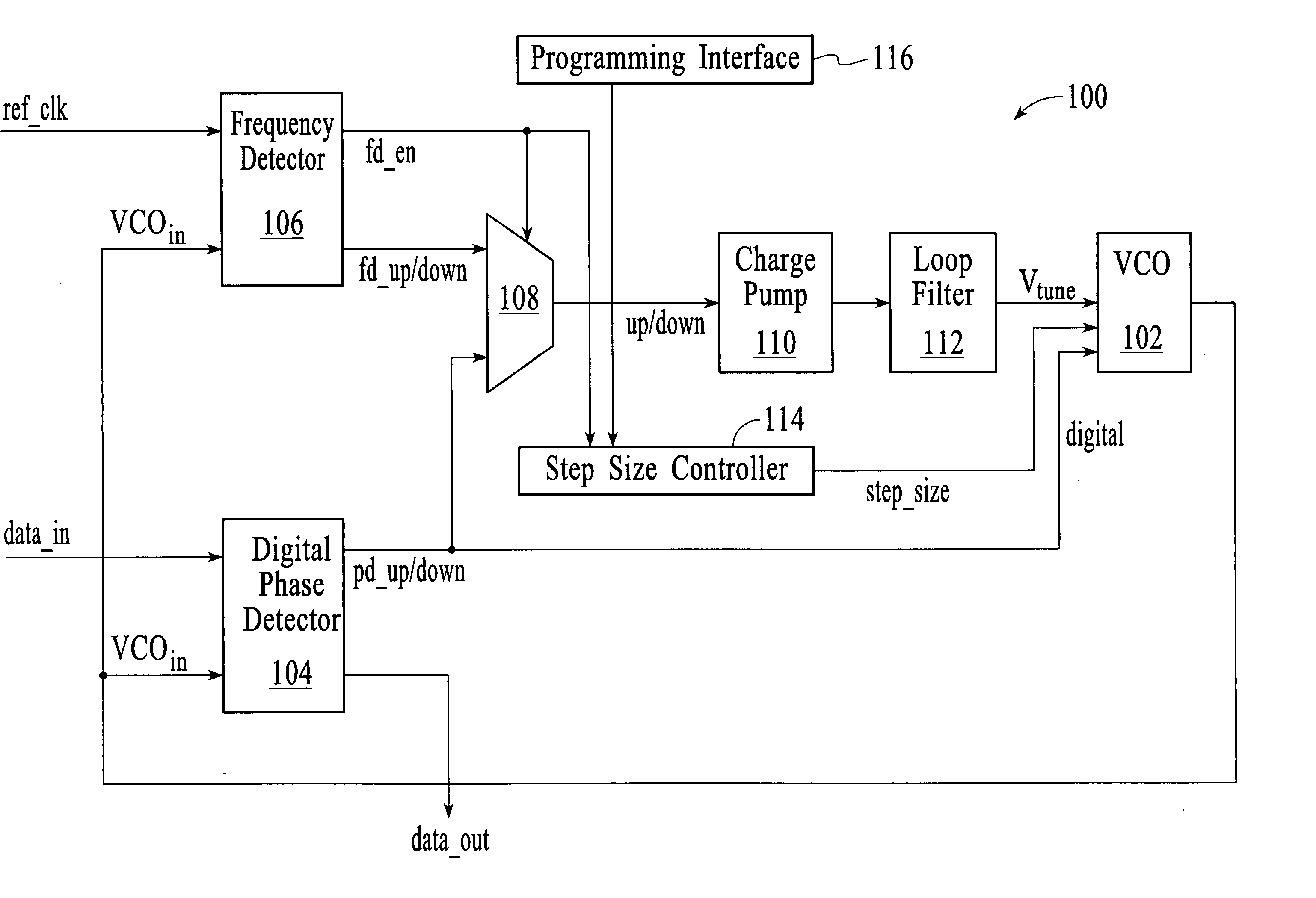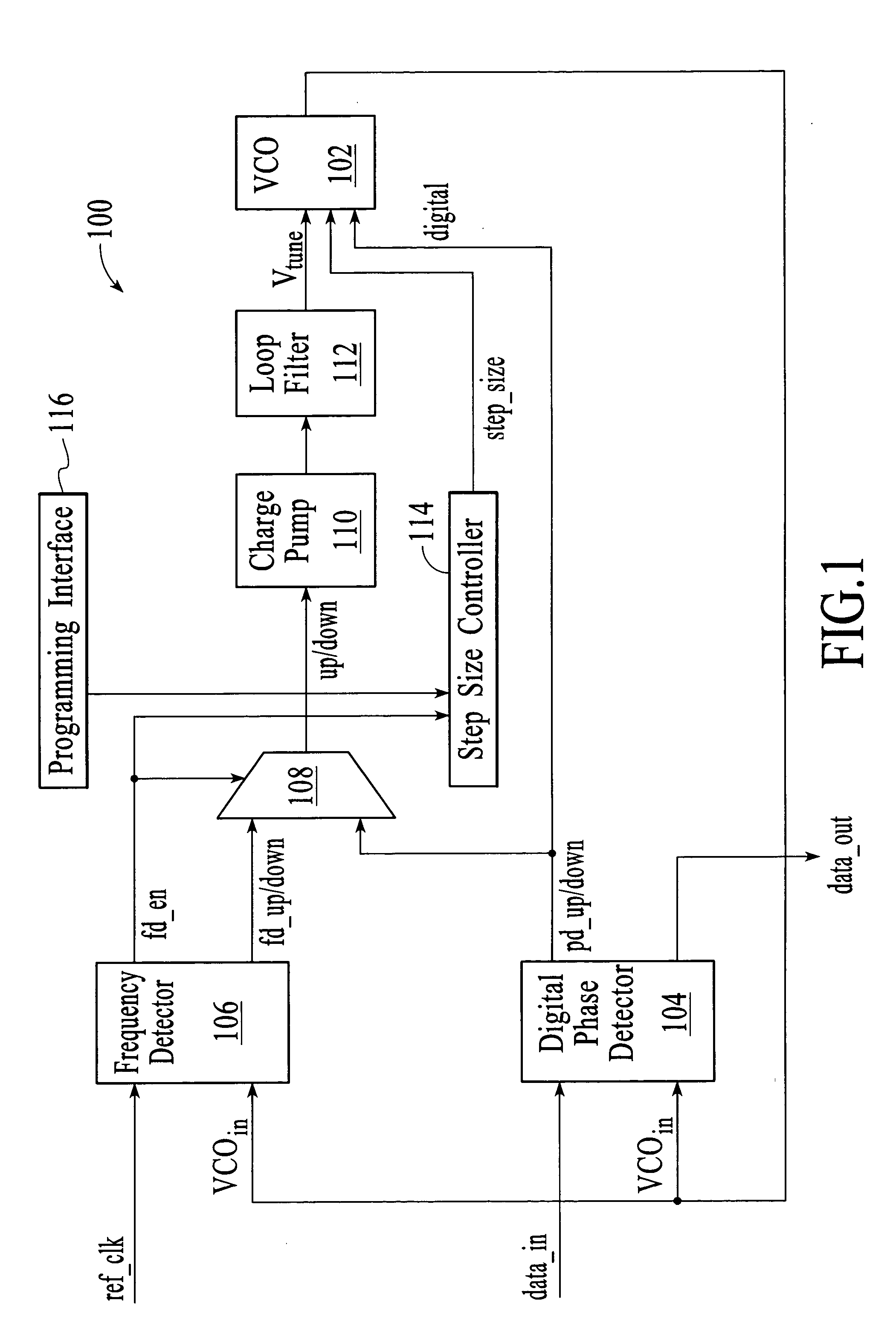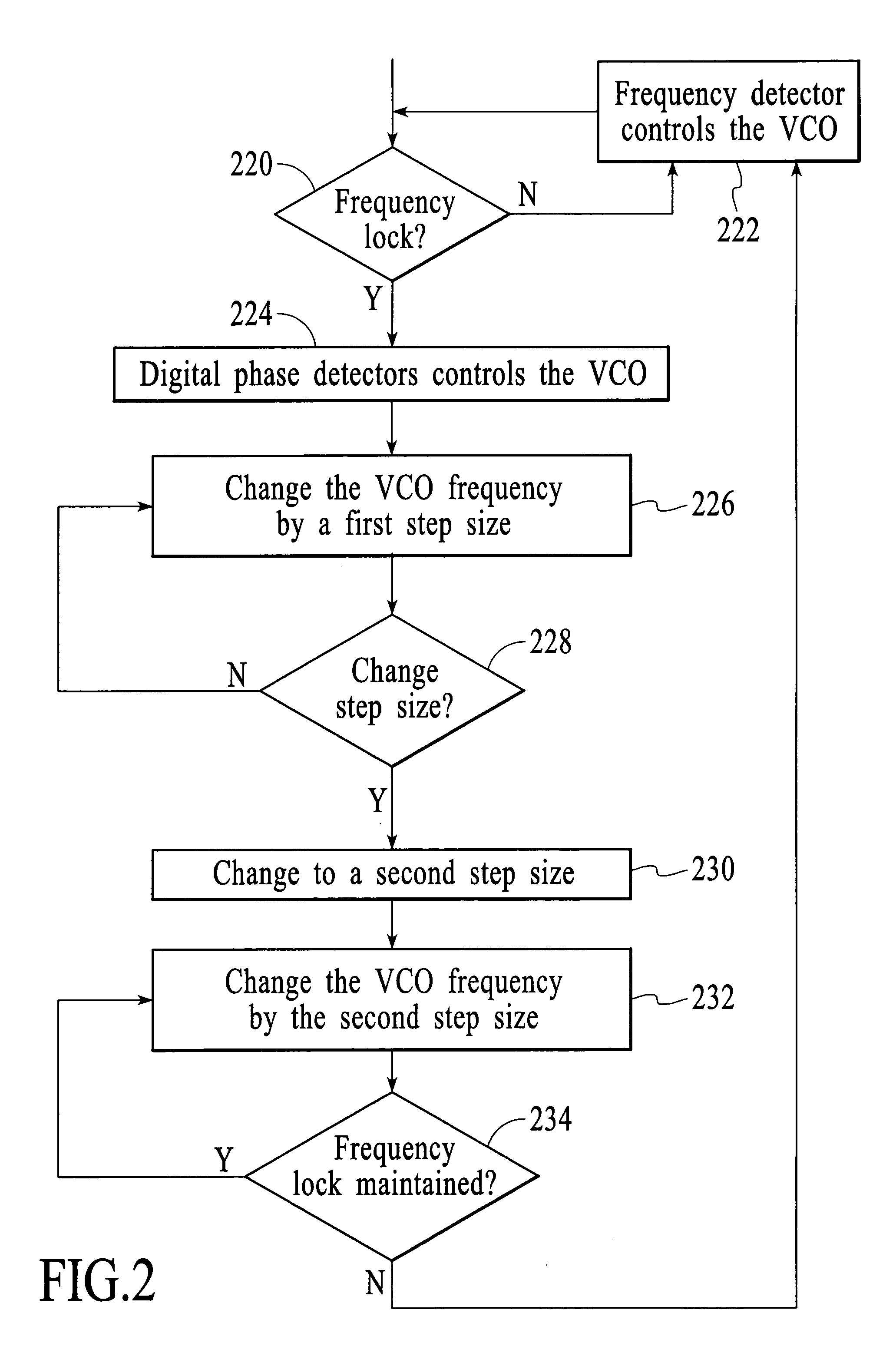Controlling a voltage controlled osillator in a bang-bang phase locked loop
- Summary
- Abstract
- Description
- Claims
- Application Information
AI Technical Summary
Benefits of technology
Problems solved by technology
Method used
Image
Examples
Embodiment Construction
[0025] The task of a PLL is to lock the frequency and phase of a VCO signal to a particular signal, referred to herein as a data input signal (data_in). In PLLs with bang-bang phase detection, the phase detector adjusts the frequency of the VCO signal using a simple up / down signal. In accordance with the invention, the frequency changes produced using an up / down signal are initially set to cause a faster pull-in rate and then reduced to cause a slower pull-in rate. The slower pull-in rate is then maintained during regular PLL operation.
[0026]FIG. 1 depicts an embodiment of a bang-bang PLL 100 that includes a voltage controlled oscillator (VCO) 102, a digital phase detector 104, a frequency detector 106, a multiplexer 108, a charge pump 119, a loop filter 112, and a step size controller 114. The digital phase detector 104 is connected to receive an input signal (data_in) from a signal source and a portion of the VCO signal (VCOin) from the VCO. The input signal carries the data that...
PUM
 Login to View More
Login to View More Abstract
Description
Claims
Application Information
 Login to View More
Login to View More - R&D
- Intellectual Property
- Life Sciences
- Materials
- Tech Scout
- Unparalleled Data Quality
- Higher Quality Content
- 60% Fewer Hallucinations
Browse by: Latest US Patents, China's latest patents, Technical Efficacy Thesaurus, Application Domain, Technology Topic, Popular Technical Reports.
© 2025 PatSnap. All rights reserved.Legal|Privacy policy|Modern Slavery Act Transparency Statement|Sitemap|About US| Contact US: help@patsnap.com



